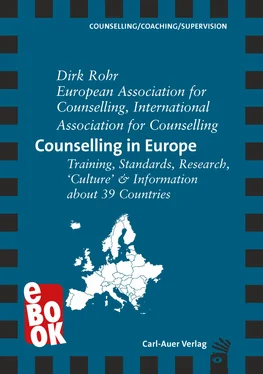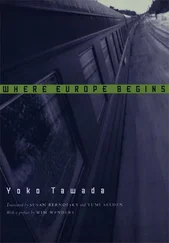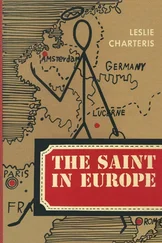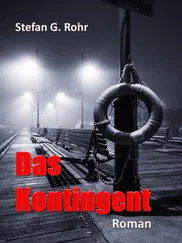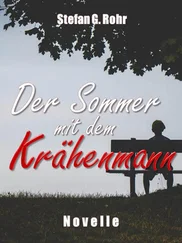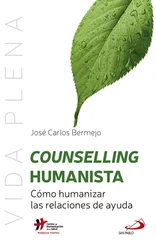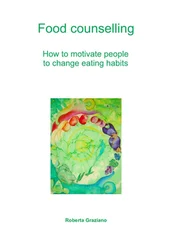The ninth chapter is a guest contribution from John McLeod. Thank you very much, John.
Chapter 10deals with some essential ethical topics – e. g. transcultural. It is a short form of a book I am writing together with Ilja Gold and Eva Weinberg (Gold, Weinberg and Rohr 2021), including Interviews with Souzan AlSabah, Sandra Karangwa, Berivan Moğultay-Tokuş, Amma Yeboah and a preface from Eia Asen. I thank all of them.
Chapter 1, 7, 8and 10are partly already published in German. I think some of the thoughts are very interesting for an international audience. I thank the publisher and my co-authors for allowing this.
Book structure
The first chapter defines and explains counselling. Then, in chapter 2, the European Association for Counselling (EAC) and its training standards are presented. Chapter threedescribes the International Association for Counselling (IAC). Chapter fourgives an overview about the brief history and background of counselling, the current regulatory status, the challenges and trends as well as additional information of 39 European countries. These are the European results of the World Mapping Project (IAC). Chapter 5gives an overview of the selected European-wide associations. The American and the European Standards are compared in chapter 6, while Chapter 7deals with teaching counselling.
I cover the importance of research in chapter 8. The following Chapter 9features a guest contribution from Prof. John McLeod, "Integrating research knowledge and awareness into counselling and psychotherapy training: an apprenticeship model". Finally, Chapter 10deals with power, discrimination and racism in counselling.
All countries differ significantly in economic opportunities, social policies, religious practices, political organisation, wealth, and much more. The world population reached the 1 billion mark in 1820, and less than two hundred years later (2011) the number of people had already increased to 7 billion. This excessive growth exacerbates problems related to employment, pollution, poverty, and depletion of natural resources.
The 20th century experienced two major world wars, advances in science and technology, the Cold War, and increasing concern for the environment. Steady growth in science and communications technology and changes in family structures in the 21st century raise both hopes and fears among the population (cf. Hohenshil, Amundson & Niles 2015, p. 3). The current time is characterised by the fast pace and constant change. Also, there is the problem of the Coronavirus, which spread worldwide, putting the entire population in a state of emergency. The stressors mentioned above lead to psychological strain on individuals and groups. Essential counselling functions are available in every culture globally. Yet in some countries they are more likely to be performed by families, friends, acquaintances, indigenous healers, shamans or non-specifically trained medical personnel. Against this background, there is a growing need to initiate, develop, and professionalise counselling services worldwide to promote society’s mental health (cf. Hohenshil, Amundson & Niles 2015, p. 4).
Counselling is a discipline in its own right; it is a sub-discipline of various psychological, educational, social, labour, and organisational science or other disciplines. It is a cross-disciplinary, scientifically based concept of thought and action that different disciplines draw on and use according to their specific objectives and needs. From this starting point, I would like to use this book to help you understand that counselling is coming out of the shadow of a formerly predominantly therapeutic basic understanding. And not least due to international developments – is developing its own, scientifically based profile. Through specific counselling courses of study at universities and colleges and continuing education institutions. In no way should the previous diversity of counselling concepts and counselling formats be abandoned favouring a uniform counselling system. For it is precisely this diversity that represents a great resource in the fields of application and for the target groups of counselling.
With the social developments in recent decades, one can observe a rapidly increasing need for counselling in the most diverse everyday and professional life areas. It must guarantee that experienced-based, effective and efficient counselling based on theoretically and methodologically sound knowledge from an experienced perspective. A prerequisite for this is a scientifically elaborated, interdisciplinary counselling concept.
Counselling is in the field between individual therapeutic measures, social welfare activities and educational activities. It draws on knowledge from the following areas: medicine, psychology, psychagogy, psychotherapy, social work and sociology, and in exceptional cases, theology and legal sciences.
By synthesising and integrating psychodynamic, behavioural therapy, humanistic and systemic approaches, she develops ways of working for her specific work field.
Counselling in the psychosocial field deals with people who seek guidance, advice, support and help with various problems and questions of coping with their existence.
The counsellors are informed by the people seeking help with factual information about their personal life situation and the behavior of the people interacting with them and thus are allowed to work together with the person seeking help and clarify the concrete situation and resolve the conflict.
Counselling is a special get-together for a period of time. Its standards incorporate the individual’s full intentionality. Then again, the counsellor gives complete privacy to the client. Counselling’s objective is not to offer solid guidance, the advisor endeavors along with the individual looking for appeal, and help explain their troubles, issues, or clashes and attempts to give them both assistance in comprehension and direction as help in deciding. Opportunities for tackling problems are looked for together. Counselling is one form of empowerment.
One of the counselling objectives is to look for guidance and help more dependable and suitable and give that person more individual flexibility. Accomplishing this objective requires a fortifying of oneself. Accordingly Advising at the same time adds to the democratization of society" (BfgA, 1975, 4).
Counselling, as we can see, has a long history. First as a concept for action in social work, then as part of therapeutic action, counselling is on its way to becoming a discipline in its own right. It is here that it gains its ability to connect with international developments in counselling. Although the professionalization of counselling in Europe still seems to be borrowed from and linked to therapeutic schools and based on an internationally established academic profile.
Most recently there has been a great deal of progress in counsellings theorization in Europe (cf. Nestmann & Engel, 1997.
The Bologna Process at European universities, which favours an interdisciplinary approach without one discipline or another being able to claim dominance alone, is helpful in this regard.
Counselling has a long professional tradition but its independent academic formatting has only just gained momentum in Europe. To establish and maintain the international connection to the development of counselling, there is an urgent need for an expanded scientific positioning and establishing of direction (see chapter 8). This also applies to the professional discourses in the informal continuing education sector of the professional associations currently being sought, such as developments in the European Qualifications Framework for Lifelong Learning (EQF). A wide variety of cooperative ventures between universities, higher education institutions and continuing education and training institutes, between theory and practise are currently exemplary and could point to sustainable new developments.
Читать дальше
